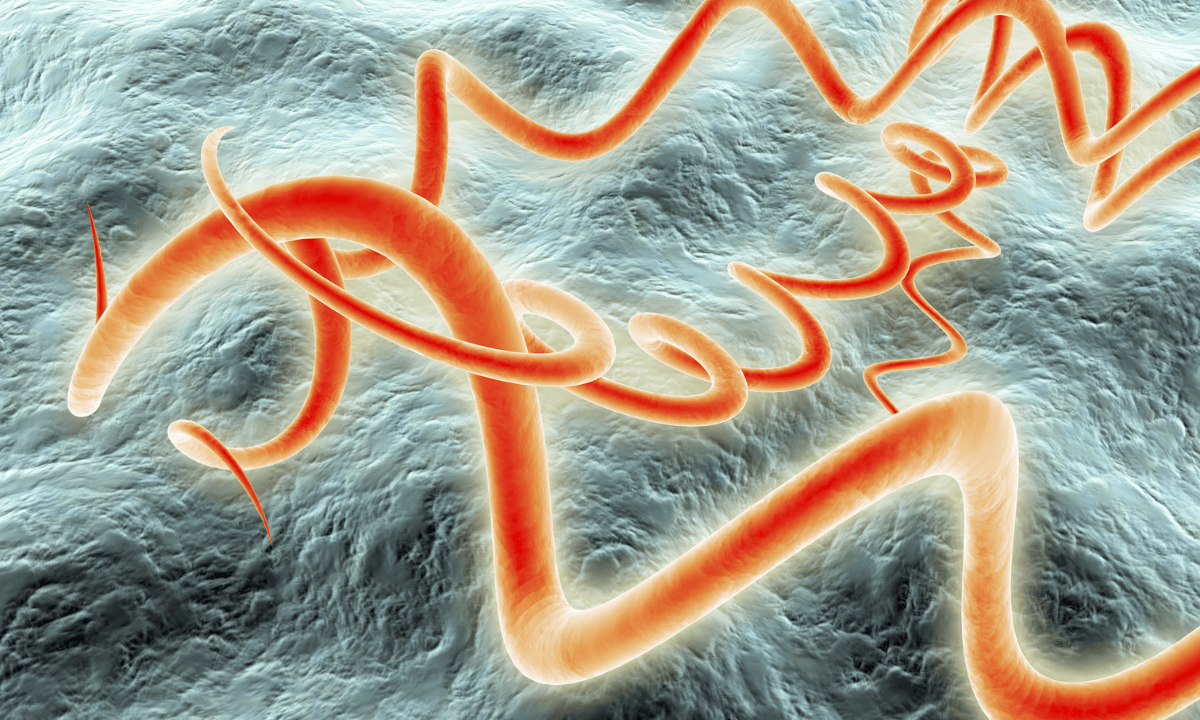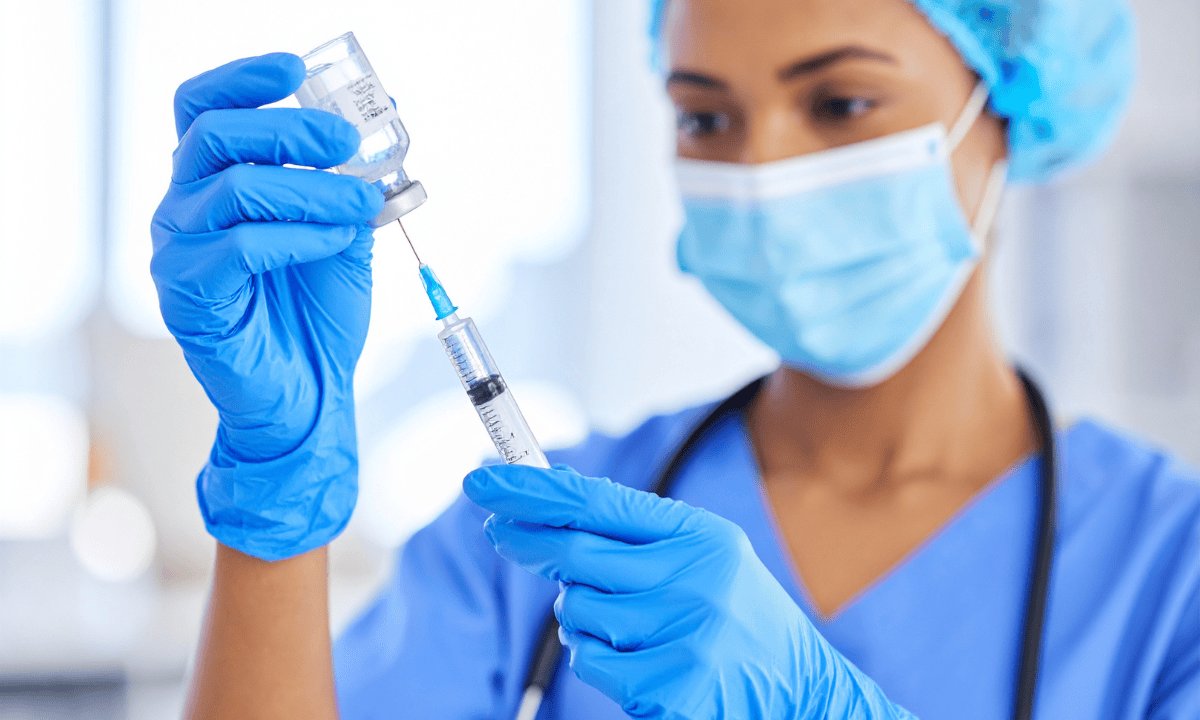Getting tested for syphilis may be uncomfortable, but knowing your status is one of the most responsible steps you can take for your sexual health. Testing is quick, confidential, and provides the clarity you need to protect your health. In Singapore, several types of syphilis tests are available, and understanding which test does what can help you feel more prepared when you visit your doctor.
What is syphilis?

Syphilis is a sexually transmitted infection (STI) caused by a type of bacteria called Treponema pallidum. It spreads through vaginal, anal, and oral sexual intercourse. Pregnant women can also pass it to their babies during pregnancy or birth (congenital syphilis). In rare cases, syphilis can spread through blood transfusion.
Without treatment, syphilis moves through four stages, and each brings different symptoms and health risks. The infection is completely curable with antibiotics when caught early, which is why testing matters.
What are the symptoms of syphilis?
While testing is the most reliable method, knowing the symptoms can help you decide when to get checked.
Primary syphilis often starts with a painless sore called a chancre. It appears where the infection entered your body, usually through your genitals, rectum (the last part of your bowel), or mouth. The sore heals on its own within a few weeks, but the infection stays in your body.
Secondary syphilis may develop a few weeks later with symptoms such as a skin rash on your palms or soles, swollen lymph nodes (small glands that help fight infection), fever, fatigue, or patchy hair loss.
Latent syphilis is when visible symptoms disappear, but the infection remains active inside your body.
Tertiary syphilis can develop years later and cause harm to your heart, brain, eyes, and nerves.
Symptoms can appear anywhere from 10 days to three months after exposure, with most people noticing signs around 21 days. Because syphilis can hide without symptoms, testing is your best and most reliable protection.
Why does syphilis testing matter?
Syphilis symptoms can be mild or even invisible, especially in the latent stage when the infection hides in your body without any signs. You might feel perfectly fine while the bacteria continue to spread or cause harm.
Regular testing is the only reliable way to know if you have syphilis. Early detection means:
You can start treatment right away before complications develop
You avoid passing the infection to your partners
You prevent serious long-term damage to your heart, brain, and nervous system
Even if you don't have symptoms, getting tested is important, especially if you have new or multiple partners or if a partner has been diagnosed with an STI.
Where to get tested for syphilis in Singapore?
Getting tested for syphilis in Singapore is straightforward and private. You can visit several types of healthcare facilities, including:
General practitioner (GP) clinics
Polyclinics
Private sexual health clinics
Hospitals and specialist centres
Your doctor will take a blood sample to look for treponemal antibodies, proteins your immune system makes to fight infections produced in response to the syphilis bacteria. In some cases, swab samples from sores or ulcers may also be collected for a more accurate diagnosis.
Most doctors run both a screening test and a confirmatory test to make sure the results are accurate and figure out what stage the infection is in.
Our O&G specialists
Loading...
Types of syphilis tests
Knowing the different types of syphilis tests can help you know what to expect when you get screened. Here are the three main tests used in Singapore:
VDRL test (Venereal Disease Research Laboratory)
The VDRL test is a blood test that looks for antibodies linked to syphilis. It's one of the most common screening tools doctors use first to detect a possible infection.
While the VDRL test is helpful for spotting syphilis, it's not specific to the infection alone. This means it can sometimes show a positive result even when you don't have syphilis (called a false positive). However, it's still useful for checking if treatment is working, since antibody levels usually drop after successful treatment.
RPR test (Rapid Plasma Reagin)
The RPR test works similarly to the VDRL test. It's quick, affordable, and widely used for both screening and tracking your recovery after treatment.
Because it can also give false-positive results, a positive RPR test should always be confirmed with a more specific test like TPPA.
TPPA test (Treponema Pallidum Particle Agglutination Assay)
The TPPA test is a confirmatory test. Unlike VDRL and RPR, it specifically detects antibodies that target the syphilis bacteria. Your doctor will use this test to confirm infection after you get a positive result from a screening test.
One important thing to know is that TPPA results stay positive for indefinitely, even after successful treatment. This means the test shows whether you've ever been infected, but it can't tell the difference between a current infection and a past one. To get an accurate diagnosis, your doctor will look at both your TPPA results and your screening test results (like VDRL or RPR) together.
How much does syphilis testing cost in Singapore?
The cost of syphilis testing depends on where you go and which tests are performed. Here's what you can expect:
- Government and subsidised clinics (for Singaporean citizens and permanent residents) cost around SGD 20-50.
- Private clinics and hospitals cost between SGD 50 and 150.
- Comprehensive STI panels, which test for multiple infections including syphilis, cost between SGD 150 and SGD 300 or more.
Prices may vary depending on the type of test and whether consultation fees are included. These tests are an essential step in safeguarding your sexual health and help prevent serious complications from syphilis.
If you're concerned about your sexual health or think you may have been exposed to syphilis, getting tested gives you clarity and peace of mind. At Thomson Medical, our O&G specialists can help provide confidential testing and walk you through your results in a supportive environment. Request an appointment today.
What happens after your syphilis test?
After your blood sample is collected, results are usually available within a few days to a week, depending on the clinic and laboratory.
If your test is negative, it means no antibodies to syphilis were detected. However, if you were tested too early (within the first few weeks after exposure), your body may not have produced enough antibodies yet. In this case, your doctor may recommend retesting after three to six weeks.
If your test is positive, your doctor will confirm the diagnosis with additional tests and discuss treatment options with you. The good news is that syphilis is completely curable with antibiotics, especially when caught early.
How is syphilis treated?

Syphilis can be treated with antibiotics, and penicillin is the most commonly used. For early-stage infections (primary, secondary, or early latent syphilis), a single injection of penicillin G is usually enough.
For late-stage infections, you may need multiple injections over several weeks. If you're allergic to penicillin, your doctor can prescribe alternative antibiotics under close supervision.
Treatment works best in the early stages, stopping the infection before it causes long-term damage. Recovery time may vary. Early-stage infections may clear up after a single dose, while advanced cases may need longer treatment plans.
How can you prevent syphilis?
Preventing STDs such as syphilis comes down to safe sexual practices and regular testing. To stay protected:
Use condoms and dental dams during sexual activity
Limit the number of sexual partners
Get regular STI screening, especially if you have new or multiple partners
Avoid sharing needles
If you're pregnant, include syphilis testing as part of your routine prenatal care
These steps help protect both you and your partners from infection. If you’re concerned about your sexual health or want to learn more about prevention, request an appointment with Thomson Medical for confidential testing and tailored guidance.
FAQ
Can a GP test for syphilis?
Yes. Most general practitioners in Singapore can perform or arrange a syphilis test. Samples may be taken at the clinic or sent to an external laboratory for testing.
What test is done to confirm syphilis?
A treponemal test, such as TPPA, is used to confirm infection after an initial positive screening result from a VDRL or RPR test.
Can I test myself for syphilis at home?
Rapid test kits are available for home use, but they're not as reliable as laboratory blood tests. For accurate results and proper interpretation, it's best to consult with your doctor.
How soon should I test for syphilis after exposure?
Tests are most accurate about three to six weeks after possible exposure. If you test too early, the results may not detect the infection yet, so you may need to repeat the test later.
How accurate are syphilis tests?
Syphilis tests are generally very accurate when used together. Screening tests (VDRL/RPR) are sensitive but may give false positives. Confirmatory tests (TPPA) are highly specific. Using both types together ensures accurate diagnosis.
Will the test show if I had syphilis in the past?
Yes. Treponemal tests like TPPA stay positive indefinitely, even after successful treatment. Your doctor will use additional tests to determine if you have an active infection or were infected in the past.
The information provided is intended for general guidance only and should not be considered medical advice. For personalised recommendations and tailored advice based on your unique situations, please consult a specialist at Thomson Medical.Request an appointment with Thomson Medical today.
For more information, contact us:
Thomson Specialists (Women's Health)
Thomson Women's Clinic (TWC)
- Novena:
6592 6686 (Call), 8611 8986 (WA) - Bukit Batok:
6569 0668 (Call), 8686 3525 (WA) - Choa Chu Kang:
6893 1227 (Call), 8282 1796 (WA) Jurong:
6262 8588 (Call), 6262 8588 (WA)- Katong (female doctor):
6970 2272 (Call), 8611 9020 (WA) - Punggol:
6243 6843 (Call), 8811 0328 (WA) - Sembawang: 6753 5228
- Sengkang: 6388 8125
- Serangoon (female doctor): 6382 3313
- Tampines: 6857 6266
- Tiong Bahru: 6276 1525
